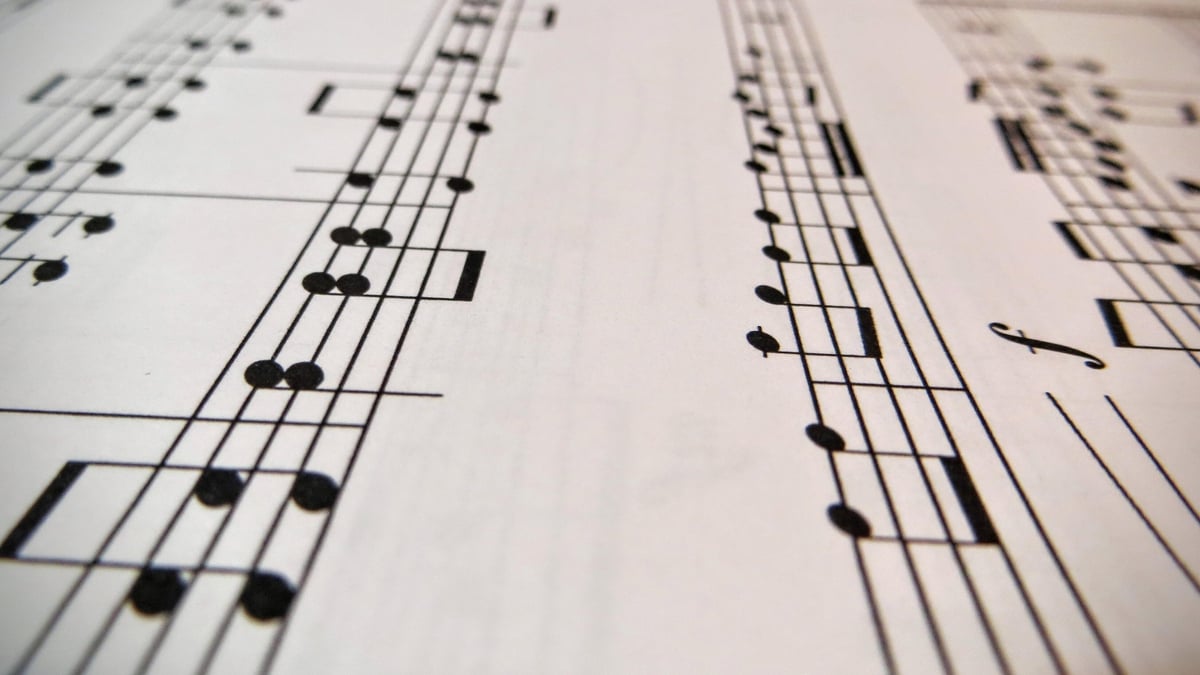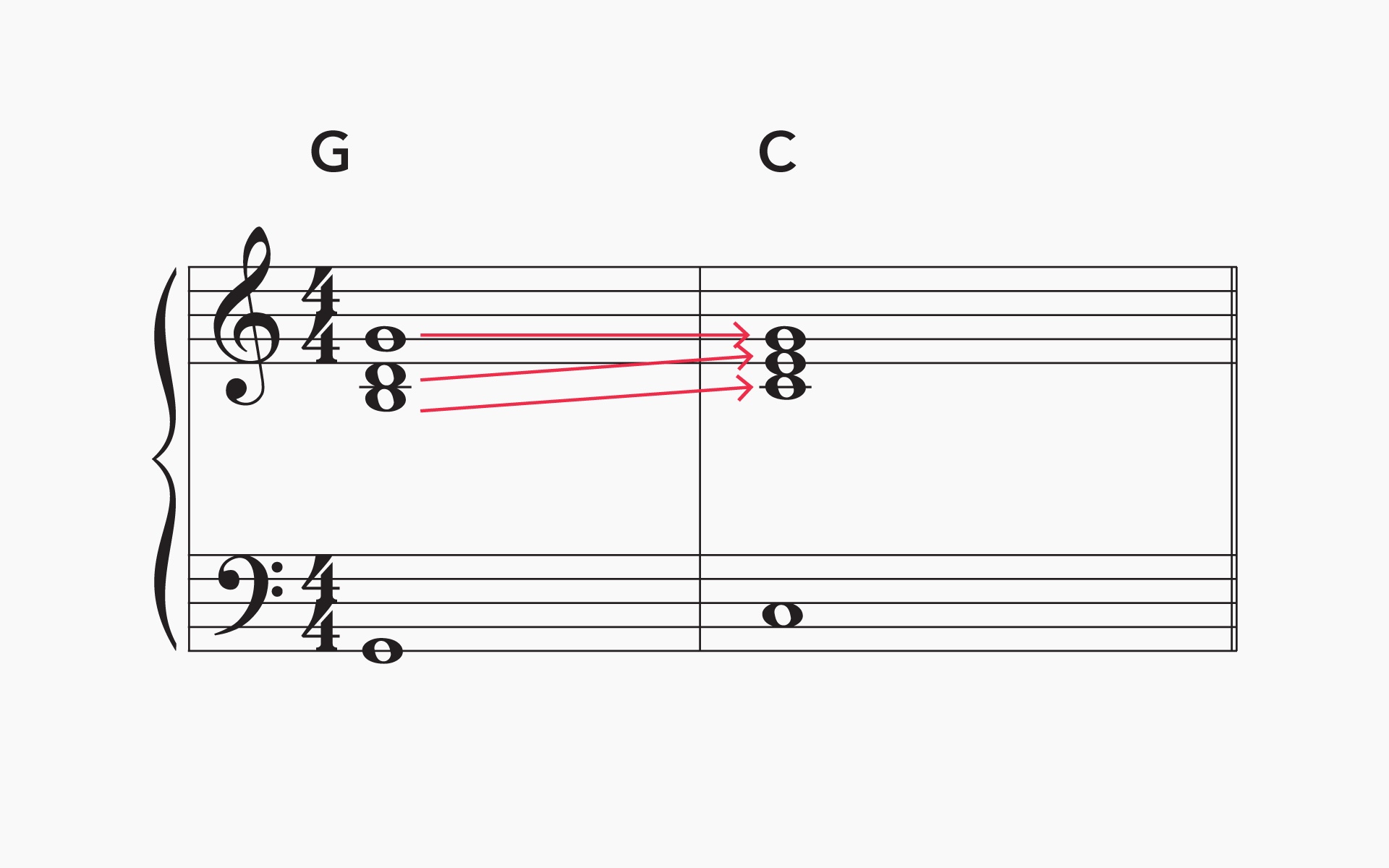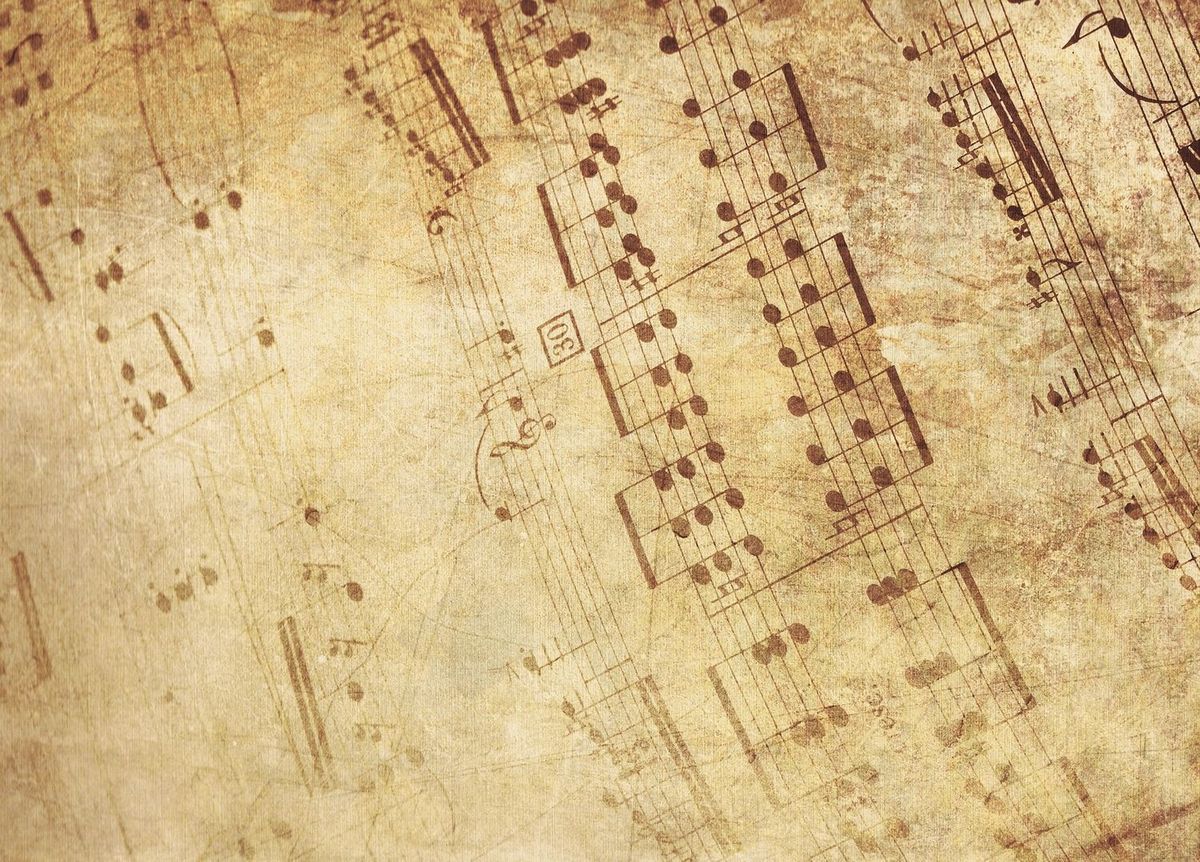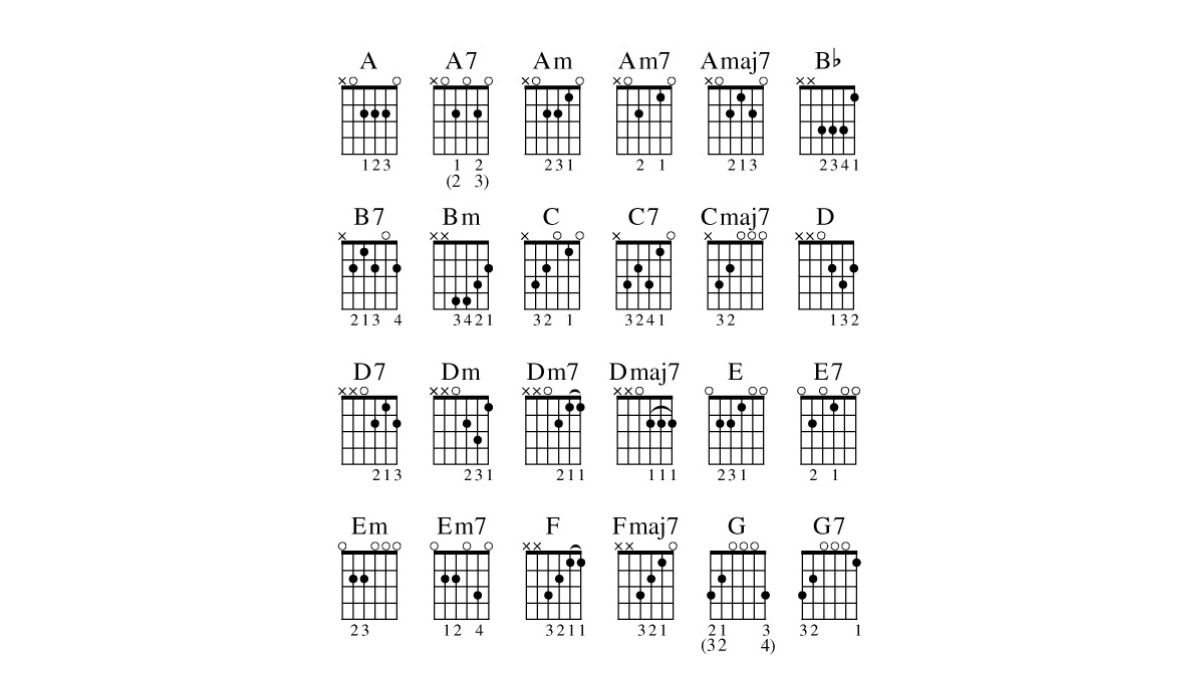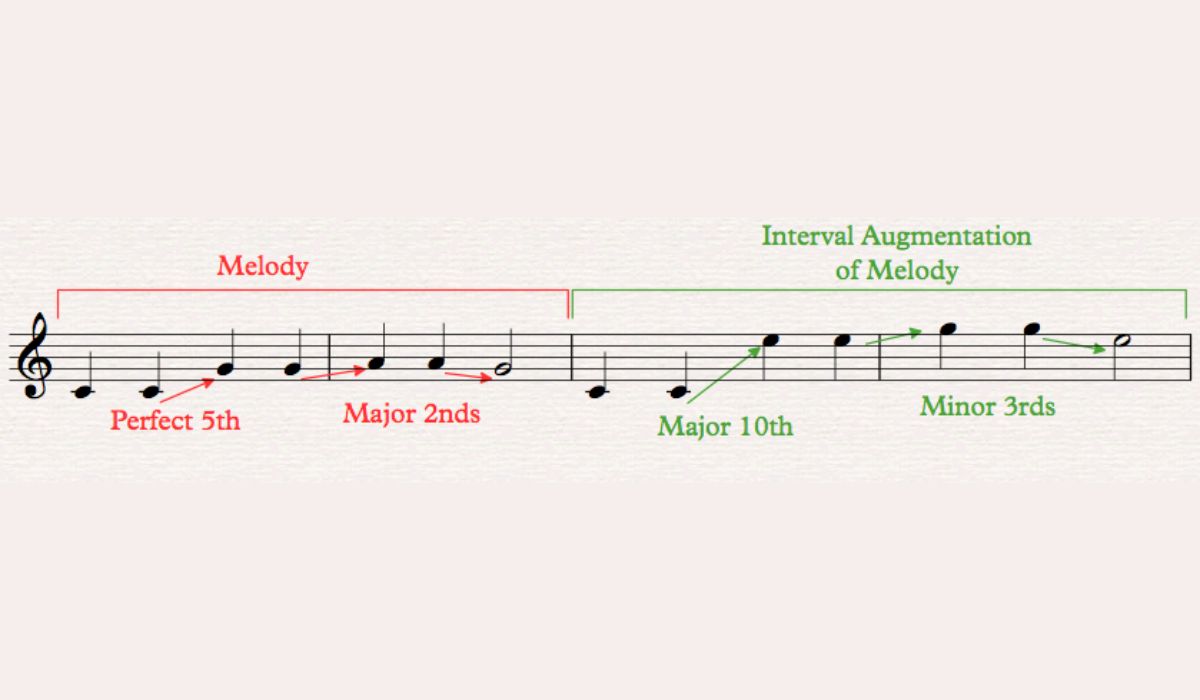Home>Production & Technology>Music Theory>How Did Pythagoras Contribute To Ancient Music Theory
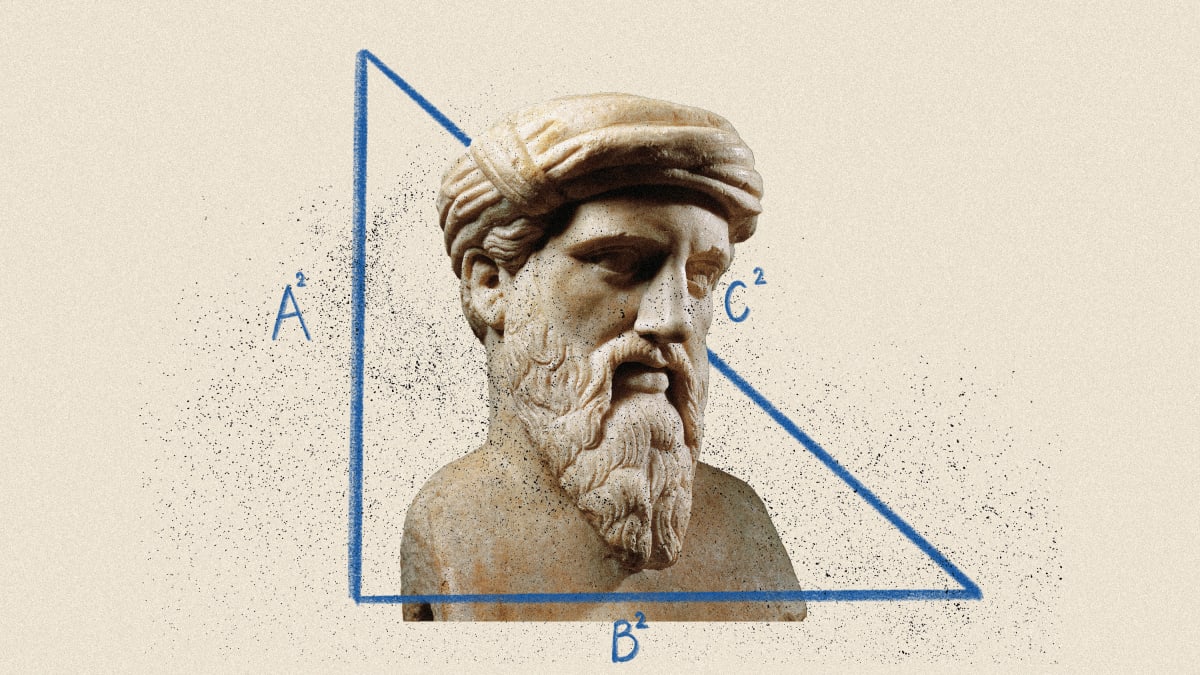

Music Theory
How Did Pythagoras Contribute To Ancient Music Theory
Published: January 29, 2024
Discover the significant contributions of Pythagoras to ancient music theory. Explore the fascinating intersection of mathematics and music to understand the origins of Music Theory.
(Many of the links in this article redirect to a specific reviewed product. Your purchase of these products through affiliate links helps to generate commission for AudioLover.com, at no extra cost. Learn more)
Table of Contents
Introduction
Music is a universal language that has been a source of joy, inspiration, and expression for centuries. Behind the melodies and harmonies lies a complex system of rules and principles known as music theory. Throughout history, many influential figures have contributed to the development and understanding of music theory, enabling composers and musicians to create captivating and meaningful compositions.
One such figure is Pythagoras, a Greek philosopher, mathematician, and musician who lived in the 6th century BCE. Pythagoras is well-known for his contributions to various fields, including mathematics and philosophy. However, his influence on ancient music theory is often overlooked. Pythagoras believed in the power of numbers and their relationship to the natural world, and this belief shaped his understanding of music.
In this article, we will explore the life and teachings of Pythagoras, his philosophy and use of numerology, his concept of harmonia, his discovery of Pythagorean tuning, and his lasting legacy on western music theory.
By delving into Pythagoras’ contributions to ancient music theory, we can gain a deeper appreciation for the mathematical and philosophical underpinnings of the music we enjoy today. Let us embark on a journey to discover the profound impact of Pythagoras on the world of music theory.
Early Life and Teachings of Pythagoras
Pythagoras was born on the island of Samos, Greece, around 570 BCE. Not much is known about his early life, but it is believed that he came from a wealthy family. As a young man, he traveled extensively, seeking wisdom and knowledge from various cultures and schools of thought.
After his travels, Pythagoras settled in Croton, a city in southern Italy, where he established his own school known as the Pythagorean Brotherhood. This community of scholars and philosophers was committed to exploring the mysteries of the universe through mathematics, music, and philosophy.
Pythagoras believed that the universe was governed by mathematical principles and that everything could be explained through numbers. He saw numbers as the fundamental building blocks of reality and the key to unlocking the secrets of the universe.
This belief in the power of numbers influenced his teachings on music. Pythagoras saw music as a reflection of the harmonic order of the cosmos. He believed that by studying and understanding music, one could gain insight into the underlying structure of the universe.
In his school, Pythagoras emphasized the importance of both theoretical and practical knowledge. Students were trained in music theory, mathematics, and philosophy, and they also engaged in musical performance and composition. This holistic approach allowed students to develop a deep understanding of the relationships between sound, numbers, and the natural world.
Pythagoras’ teachings on music went beyond mere aesthetics. He believed that music had a profound impact on the human soul and could be used as a tool for spiritual and moral development. According to Pythagoras, certain musical intervals and harmonies could evoke specific emotions and states of mind, leading to a harmonious and balanced life.
Pythagoras’ emphasis on the power of music and its connection to the cosmos laid the foundation for his groundbreaking discoveries in music theory. His teachings would go on to revolutionize the way ancient civilizations understood and approached music, leaving a lasting legacy that continues to influence musicians and theorists to this day.
Pythagorean Philosophy and Numerology
The core of Pythagorean philosophy was centered around the belief that numbers held the key to understanding the fundamental nature of the universe. Pythagoras and his followers believed that numbers were not only a tool for calculation, but they represented the very essence of reality.
Pythagorean numerology was based on the concept of the “Monad,” which represented the divine source or the ultimate unity. From this Monad, all numbers emerged, each with its own unique qualities and significance. According to Pythagoras, numbers were not arbitrary symbols but embodied deep metaphysical meaning.
The Pythagoreans assigned various attributes to different numbers. For example, the number 1 represented the Monad or the source of all existence. The number 2 represented duality and harmony, while the number 3 symbolized the trinity and balance. These associations were not arbitrary but seen as fundamental principles inherent in the fabric of reality.
Pythagorean numerology extended beyond the realm of mathematics and had applications in various fields, including music. Pythagoras believed that musical intervals could be understood and explained using numerical ratios.
The Pythagorean scale, also known as the diatonic scale, was based on the ratios of whole numbers. Pythagoras discovered that by dividing a vibrating string into fractions of specific lengths, he could produce harmonious musical intervals.
For example, when a string was divided into halves, the resulting pitch was an octave higher. When divided into thirds, it produced a perfect fifth, and when divided into fourths, it produced a perfect fourth. These ratios formed the basis of Pythagorean tuning, which was the foundation of ancient musical theory.
Pythagorean numerology also extended to the understanding of musical modes. Each mode was associated with a specific numerical pattern and had its own unique emotional and spiritual qualities. The Pythagoreans believed that different modes could elicit specific states of consciousness or evoke particular emotions.
Overall, Pythagorean philosophy and numerology provided a framework for understanding the interconnectedness of mathematics, music, and the universe. By recognizing the inherent patterns and harmonies in numbers and applying them to music, Pythagoras revolutionized ancient music theory and laid the groundwork for future developments in musical composition and understanding.
Pythagoras and the Concept of Harmonia
In Pythagorean philosophy, the concept of harmonia played a central role. Harmonia referred to the harmonious arrangement and balance of elements, both in music and in the broader context of the cosmos. Pythagoras believed that harmonia was the key to achieving a state of equilibrium and order in all aspects of life.
Pythagorean harmonia went beyond the simple combination of pleasing sounds. It encompassed the idea that there was an inherent connection between the musical harmony and the harmony found in the natural world. Pythagoras observed that certain musical intervals, when played together, created a sense of balance and consonance, while others created dissonance and tension.
Pythagoras explored the mathematical ratios that underlie these intervals and discovered that harmonious intervals corresponded to simple whole number ratios. For example, the octave had a ratio of 2:1, the perfect fifth had a ratio of 3:2, and the perfect fourth had a ratio of 4:3.
This discovery led Pythagoras to conclude that there was a fundamental relationship between these ratios and the cosmic order. He believed that the harmonious intervals found in music mirrored the harmonious relationships found in the movement of the celestial bodies, giving rise to the concept of the “Music of the Spheres.”
According to Pythagorean philosophy, the celestial bodies, such as the planets and stars, were thought to emit vibrations or frequencies that created a celestial harmony. Each celestial body was associated with a specific musical interval, and the harmonious movement of these bodies was believed to produce a symphony of celestial music.
Pythagoras saw this celestial harmony as evidence of a divine order in the universe. He believed that by attuning oneself to this cosmic harmony through music and living a harmonious life, one could achieve spiritual enlightenment and a deeper connection with the cosmos.
Pythagorean harmonia extended beyond the realm of music and had applications in various aspects of life. It emphasized the importance of balance, proportion, and the interconnectedness of all things. Pythagoras believed that by seeking harmonia in all aspects of life, from personal relationships to societal structures, one could create a harmonious and balanced existence.
The concept of harmonia introduced by Pythagoras had a profound influence on ancient philosophy, music theory, and even the development of Western musical traditions. It emphasized the power of music to evoke emotions, connect with the divine, and reflect the fundamental order of the cosmos.
Pythagorean Tuning and the Music of the Spheres
One of the significant contributions of Pythagoras to ancient music theory was the development of Pythagorean tuning, also known as just intonation. Pythagorean tuning was a system for tuning musical intervals based on simple whole number ratios.
Pythagoras discovered that by dividing a string into specific fractions, he could produce harmonious intervals. For example, when a string was divided into halves, the resulting pitch was an octave higher. When divided into thirds, it produced a perfect fifth, and when divided into fourths, it produced a perfect fourth.
This system of dividing the string into simple fractions formed the basis of Pythagorean tuning. It provided a means to tune musical instruments, ensuring that the intervals between their notes were in harmony with one another. Pythagorean tuning was widely used in ancient Greece and continued to influence music theory for centuries to come.
Pythagoras’ discovery of Pythagorean tuning was closely tied to his belief in the harmony of the cosmos, known as the Music of the Spheres. Pythagoras proposed that the celestial bodies, such as the planets and stars, emitted vibrations or frequencies that created a celestial harmony.
Each celestial body was associated with a specific musical interval. For example, the Earth was associated with the note C, the Moon with D, Mercury with E, and so on. The harmonious movement of these celestial bodies created a symphony of celestial music, which Pythagoras believed could be heard by those with a pure soul.
Pythagoras saw a connection between the musical intervals created by the celestial bodies and the intervals found in Pythagorean tuning. The ratios of these intervals mirrored the ratios of the musical intervals produced by dividing a string into simple fractions.
The concept of the Music of the Spheres had a profound influence on Pythagorean thought and ancient music theory as a whole. It introduced the idea that music and the universe were inseparable, and that the same underlying principles of harmony governed both.
While Pythagorean tuning eventually gave way to other tuning systems in Western music, such as equal temperament, its influence continues to be felt. The recognition of mathematical ratios as the basis for harmonious intervals laid the groundwork for the development of musical scales, chords, and the overall understanding of consonance and dissonance in music.
Pythagorean tuning and the concept of the Music of the Spheres demonstrated the deep interconnection between music, mathematics, and the natural world. These ideas continue to inspire musicians and theorists today, reminding us of the profound beauty and harmony that can be found in the music we create and the universe we inhabit.
Pythagoras’ Influence on Western Music Theory
The contributions of Pythagoras to ancient music theory had a lasting impact on the development of Western music. His exploration of the mathematical relationships underlying musical intervals and his concept of harmonia laid the foundation for the understanding of music in subsequent centuries.
One of Pythagoras’ major influences on Western music theory was his discovery of the mathematical ratios that govern harmonious intervals. By dividing a vibrating string into specific fractions, Pythagoras created a system of tuning that ensured consonant intervals. This Pythagorean tuning system became the basis for the Western musical scale, with its division of the octave into twelve equal semitones.
Pythagoras’ emphasis on the mathematical relationships in music also paved the way for the development of musical scales and modes. By assigning specific numerical patterns to different musical modes, Pythagoras provided a framework for understanding the emotional and spiritual qualities associated with each mode.
Furthermore, Pythagoras’ concept of harmonia, the harmonious arrangement of elements in music and in the cosmos, influenced subsequent Western music theory. The idea that music could reflect the fundamental order and balance of the universe became a fundamental principle in composition and performance.
Pythagorean thought also permeated ancient Greek music theory, notably through the works of Plato and Aristotle. Plato, a student of Socrates, believed that music played a crucial role in the education and moral development of individuals. His writings, influenced by Pythagorean ideas, explored the connections between music, mathematics, and the soul.
In the Middle Ages, Pythagoras’ ideas continued to shape Western music theory, particularly through the work of Boethius. Boethius, a Roman philosopher, writer, and musician, dedicated a significant portion of his work to the study of music. He expanded upon Pythagorean tuning, investigated the mathematical relationships of musical intervals, and provided interpretations of Pythagorean harmonia.
The legacy of Pythagoras in Western music theory transcended time and found resonance in the works of influential composers, such as Johann Sebastian Bach. Bach, known for his intricate and complex compositions, was a proponent of the well-tempered tuning system, a refinement of Pythagorean tuning that allowed for greater tonal flexibility.
In the modern era, Pythagorean principles still inform our understanding of music theory. The study of harmony, intervals, and musical scales continues to be rooted in the mathematical relationships that Pythagoras discovered. Musicians and theorists draw upon these principles to create expressive and harmonious compositions.
Pythagoras’ influence on Western music theory extends far beyond his own time. His exploration of the mathematical foundations of music and his concept of harmonia laid the groundwork for centuries of musical exploration and development. Today, we owe a debt of gratitude to Pythagoras for his profound contributions to the understanding and appreciation of music in Western culture.
Ancient Music Theory and the Pythagorean Legacy
The ancient world was profoundly influenced by the contributions of Pythagoras to music theory. His exploration of the mathematical relationships underlying musical intervals and his concept of harmonia shaped the way ancient civilizations understood and approached music.
Ancient Greek music theory, in particular, was greatly influenced by Pythagorean thought. Pythagoras’ emphasis on the mathematical basis of harmonious intervals provided a framework for the construction of scales, modes, and the understanding of consonance and dissonance.
Pythagorean ideas permeated the works of Greek philosophers and theorists, such as Aristoxenus and Ptolemy. Aristoxenus, a student of Aristotle, wrote extensively on the mathematical principles underlying music and the concept of musical intervals. Ptolemy, a mathematician and astronomer, further expanded upon Pythagorean tuning and explored the mathematical ratios of musical intervals in his influential work, “Harmonics.”
Pythagorean concepts also found resonance in ancient Indian music theory. The principles of Pythagorean tuning and the mathematical ratios of musical intervals mirrored the Indian concept of “sruti,” the smallest perceptible interval in music. The Indian system of “ragas” and “svaras” also drew upon Pythagorean ideas of scales and modes.
Furthermore, Pythagorean thought influenced the development of early Christian music. During the early centuries AD, Christian theologians such as Augustine drew upon Pythagorean teachings to explore the relationship between music and the divine. They saw music as a means of connecting with the spiritual realm and experiencing the harmony of the celestial spheres.
In addition to its direct influence on ancient music theory, the Pythagorean legacy had a profound impact on the Western musical tradition as a whole. The mathematical principles underlying Pythagorean tuning formed the basis for Western music theory for centuries.
However, as music evolved and composers began exploring new tonalities and harmonies, Pythagorean tuning became limited in its ability to accommodate different musical keys. The advent of equal temperament in the Renaissance allowed for greater tonal flexibility and paved the way for the development of complex harmonic compositions.
Nevertheless, the Pythagorean legacy remains embedded in the foundation of Western music theory. The understanding of musical intervals, scales, and harmonies continues to be rooted in the mathematical relationships that Pythagoras discovered.
Today, musicians and theorists continue to draw upon Pythagorean principles to create and analyze music. The concept of harmonia, the pursuit of balance and unity, remains a guiding principle in composition and performance.
The Pythagorean legacy in ancient music theory reminds us of the profound connection between mathematics, spirituality, and music. Pythagoras’ exploration of the mathematical underpinnings of music opened new avenues of understanding and paved the way for centuries of musical development. It is a testament to the enduring influence and importance of Pythagoras’ contributions to the world of music.
Conclusion
Pythagoras, with his pioneering work in ancient music theory, left an indelible mark on the understanding and development of music. His exploration of mathematical ratios, the concept of harmonia, and the discovery of Pythagorean tuning revolutionized the way ancient civilizations approached and appreciated music.
Pythagoras’ belief in the power of numbers and their connection to the natural world shaped his teachings on music. He saw music as a reflection of the harmonious order of the cosmos, and his understanding of musical intervals and scales provided a framework for composers and musicians to create harmonious and balanced compositions.
Ancient music theory, influenced by Pythagoras’ ideas, saw music as an expression of the divine and a means of connecting with the spiritual realm. This belief in the transcendent power of music permeated various cultures and influenced the development of musical traditions across the ancient world.
The Pythagorean legacy in ancient music theory has transcended time and continues to influence Western music theory to this day. The mathematical relationships underlying musical intervals, scales, and harmonies discovered by Pythagoras form the foundation of our understanding of music and its expressive potential.
Pythagoras’ contributions to music theory remind us of the deep interconnections between mathematics, philosophy, spirituality, and the arts. His work serves as a testament to the profound impact that an individual’s curiosity, exploration, and understanding can have on the development of human knowledge and expression.
As we listen to and create music, we can appreciate the immense contributions that Pythagoras made to the art form that brings so much joy, emotion, and connection to our lives. His legacy lives on in the melodies, harmonies, and rhythms that continue to resonate with us across generations, cultures, and genres.
In conclusion, Pythagoras’ insights into ancient music theory have shaped the very fabric of music as we understand it. His mathematical explorations and philosophical concepts continue to inspire musicians, composers, and theorists, offering a glimpse into the profound and intricate relationship between sound, numbers, and the natural world.




